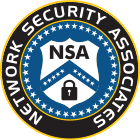To ensure optimal network security for your organization, it’s essential to make sure you address areas easy to overlook. One frequently neglected area is your local admin passwords. It’s important to understand how these passwords work and the steps you should take to prevent them from posing a security risk.
What to Know About the Local Admin Password

During the set-up process for a PC, it’s necessary to create a local admin password to provide manual access to the computer. Though most organizations don’t regularly manually access their PCs, manual access (and a local admin password) are necessary for device access if your network goes down or your organization faces other technological difficulties.
However, local admin passwords can compromise your network security. This typically happens when you use the same password for all of your devices. A hacker only needs to crack your local password once to have access to all of your company’s computers. Hackers know this is a potential vulnerability that many businesses fail to address.
With the phasing out of Windows 7, many companies are rolling out Windows 10. Even though Windows 10 disables local admin access by default, many businesses must enable it to ensure that they always have local access to their devices. When you enable the admin access option, you need to make sure that it doesn’t threaten your network security.
Options for Addressing the Security Risks Posed by a Local Admin Password
You have a couple of options for handling the potential security risks associated with a local admin password. Your first alternative is to disable this setting; however, if your network goes down or you face unexpected issues, you won’t have local access to your PC.
Another option is to check each PC has its own unique admin credentials. Though this solution does require more work, it ensures a single password doesn’t provide access to every one of your business’s PCs.
Microsoft has a tool that simplifies the process of giving each machine its own password. The tool will generate random local admin passwords for every single PC and store them in an active directory. This makes it much more cumbersome for hackers to crack and utilize your admin passwords.
If you decide to assign local admin passwords manually to your PCs, always use a different password for each machine. Make sure you change them regularly, and avoid reusing old ones.
Boost Your Network Security
Network Security Associates offers 24/7 data protection and network monitoring. We serve businesses in a variety of industries, including medical facilities and casinos. Contact us at 702-547-9800 to learn more about our managed IT services and how our team will ensure you receive reliable network security.

